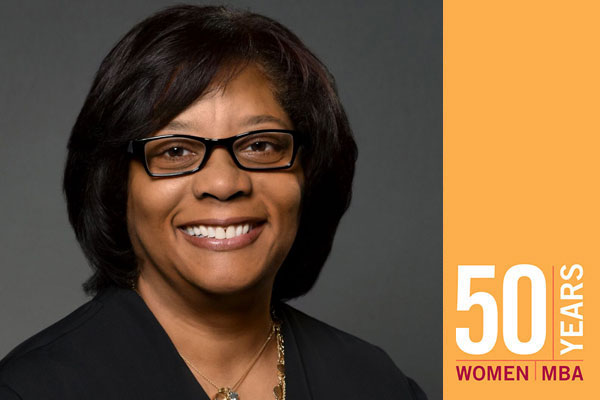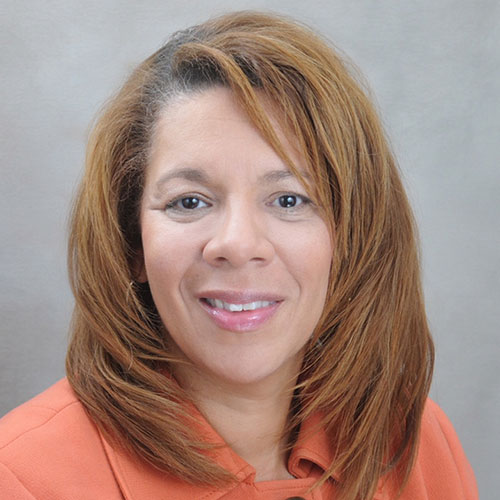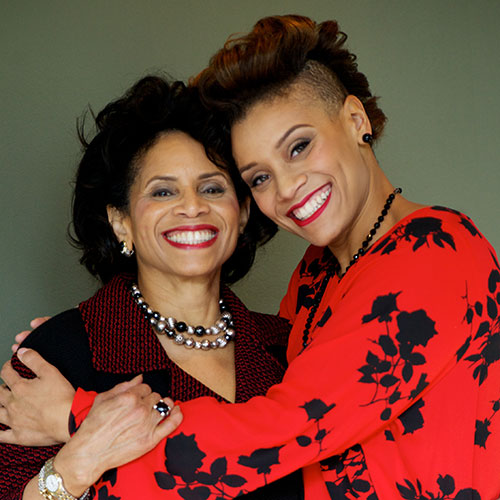
Michele Rogers
Biography
Michele Rogers serves as academic director for executive education programs at Northwestern University's Kellogg School of Management, and is director of LEAD Northwestern—an effort to address higher education access and business career preparation by identifying and developing high potential youth of diverse backgrounds. In addition to program development and teaching, Michele serves as a support liaison to nonprofit organizations in the Chicago area. She is a graduate of Williams College and holds an MBA degree from Harvard University.
What impact did HBS have on your life and the life of others?
You're the smart one—you're going to college. Heard it all my life, so I believed it. I grew up below the poverty line in the Glenville neighborhood of Cleveland. My dad worked at a beverage company and my mom cleaned houses until she got a job at a publishing company. I read everything I could get my hands on, from the back of the Cheerios box to the books with broken bindings that my mom brought home from work. I read about Henry VIII one day, and started the "G" encyclopedia the next. Frankly, that's why people thought I was smart—because I loved to read. This was fortuitous, as I was privy to great opportunities as a result.
Our public school program for talented students offered languages in second grade, and higher math and Bunsen burners in fourth grade. This program helped me earn a scholarship to Hathaway Brown, an extraordinary private school for girls in Shaker Heights, Ohio. It was a fantastic experience, but very unexpectedly, my mother died during my junior year. As the eldest of six kids, I had to help more at home. Fortunately, we also had the best dad and plenty of family support. So together, somehow we dealt with the worst. After that, even difficult challenges do not intimidate me.
Family, friends, and faculty noted my potential and supported me; now I try to do the same for others. I know there were smart students who did not receive the same encouragement. When I train others for talent identification in admissions and hiring, we always consider top performers. But we also need to consider those who started lower and have managed to get pretty close to the top; typically, they have overcome significant obstacles that help position them for success.
Learning was usually fun, but I struggled to complete assignments during my first year at HBS. Arrogance of past success led me to believe that I could simultaneously be a student, raise our first daughter Akilah [Rogers, MBA 2009], and direct Wellesley's residential A Better Chance program for six transplanted high school girls with now ex-husband Steven [Rogers, MBA 1985]. After all, we had been guardians for his 5-year-old sister Laura during our senior year at Williams. In fact, I barely had time to read assignments, much less study or meet with a group. Despite these challenges, I loved the experience of learning from so many perspectives. HBS really tested my limits during the first year, but positioned me for a truly splendid second year that included getting to know my classmates, enjoying assignments, co-leading a great AASU conference, and giving birth to my second daughter Ariel. I enjoyed class so much that I returned the week after having a C-Section, and classmates cheered when I came to the HBS Show.
My transition to teaching happened by chance. A Kellogg professor was not available to introduce the case study method during orientation. In this situation, my HBS experience was very helpful. I began by coaching the students through the process with comments such as "What data supports your statement?" By the second half, it became a highly-charged case session. I loved the dynamic nature of the process and earned top reviews. I have always found people interesting and appreciate the exploration of alternate views—teaching is a great way to engage in both of those things.
Once, I was pleasantly surprised and a tiny bit nervous about teaching Ariel's [Kellogg MBA 2013] section. Luckily, she gave me a strong review even after I used her for a teachable moment. And no surprise to anyone that Akilah truly enjoyed the HBS experience and activities. She joined me in class whenever her dad or a babysitter was not available. HBS has been a part of her life since age two! Nevertheless, I am not in the "everyone should go to business school" camp. If you're going to be a great doctor, please, go be a great doctor. If you're going to be a great historian, please do that. Be your best self—whatever that may be.
Research has proven that companies get better results with diversity and inclusion—in other words, acceptance that the views of others are worthy and make a difference. Representation matters; when you see that, you can be that. So having people of color at the top makes a huge impact. How is it even possible that there are no black female CEOs in the Fortune 500 today? This means there are systemic factors keeping people out, because it's true that talent and ability come in all genders and all colors. Organizations have to be intentional about including people of color and women because the natural inclination is to favor people like ourselves.
At a younger age, I valued intellect above all because I love learning and it is rewarded copiously. At least 70 percent of all admissions applicants I review have strong intellect. My advice for anyone attending HBS, however, is to act with good character, courage, and kindness—success will follow. I am wiser now and realize how powerful it is and how much better one can be with these qualities. Listen to understand rather than to reply. This takes practice but your response will be more thoughtful and respected. Get to know as many of your classmates, professors, and HBS staff as you can. Attend events throughout the University to benefit from new ideas that enhance your creativity and innovation. Be a blessing—use your gifts to lift others. Finally, treat challenges as potential opportunities whenever possible.
Dr. Martin Luther King was shot 50 years ago while championing equal rights, yet we have so far to go. You are the world's future leaders—make a difference.

